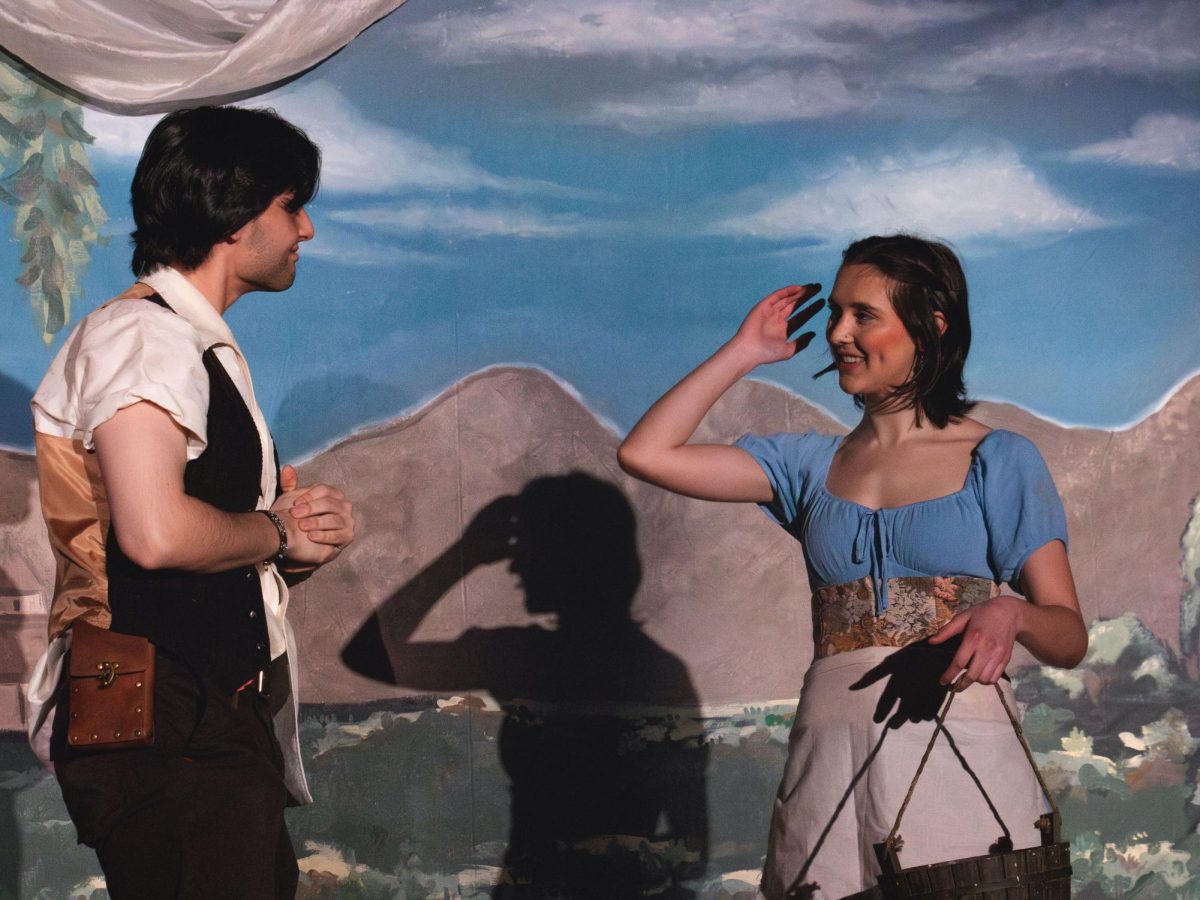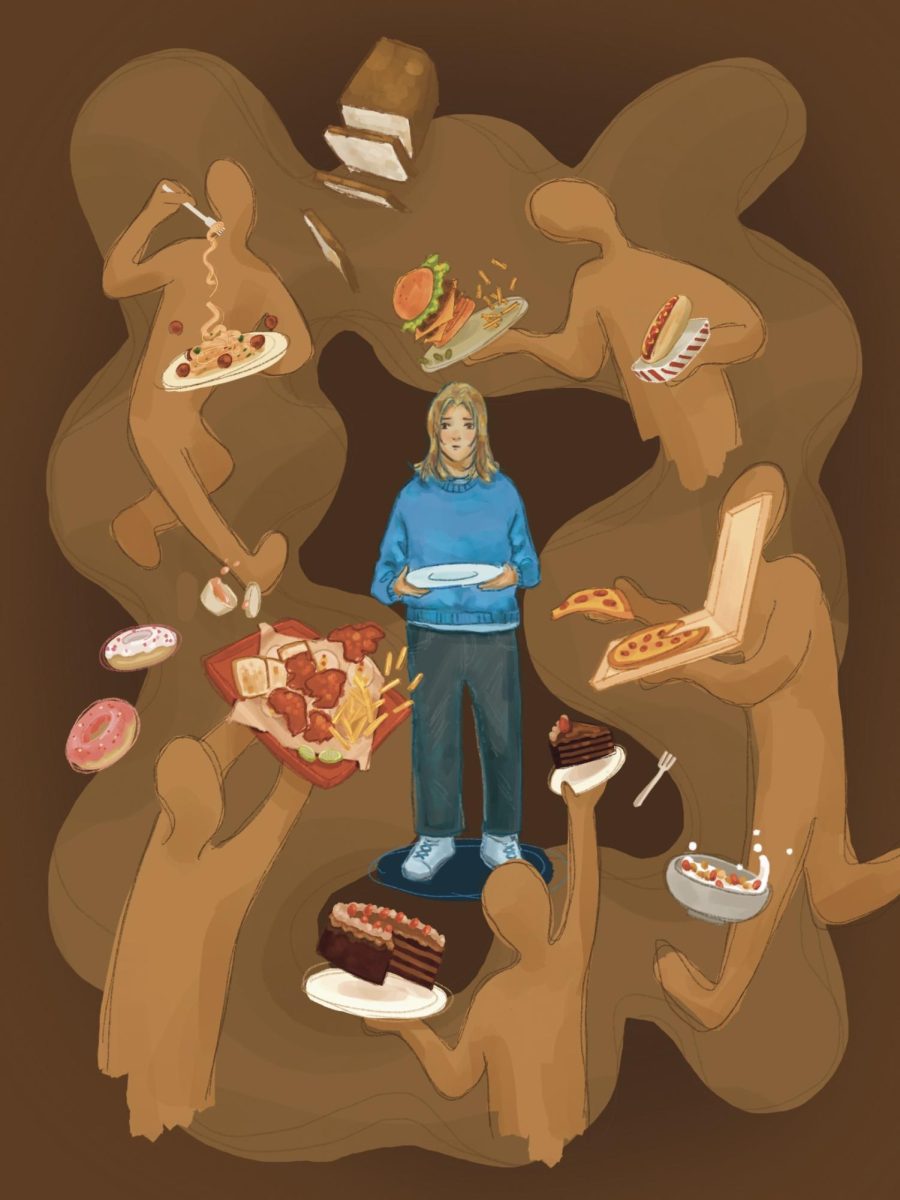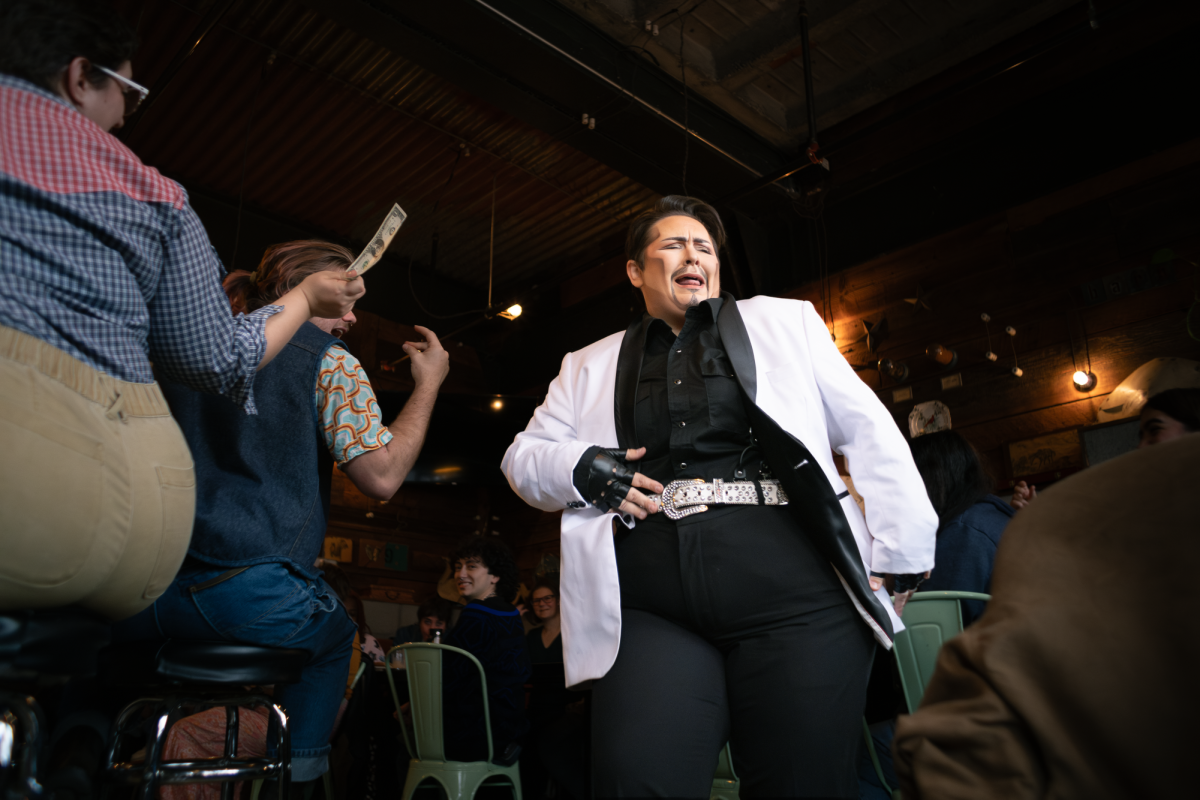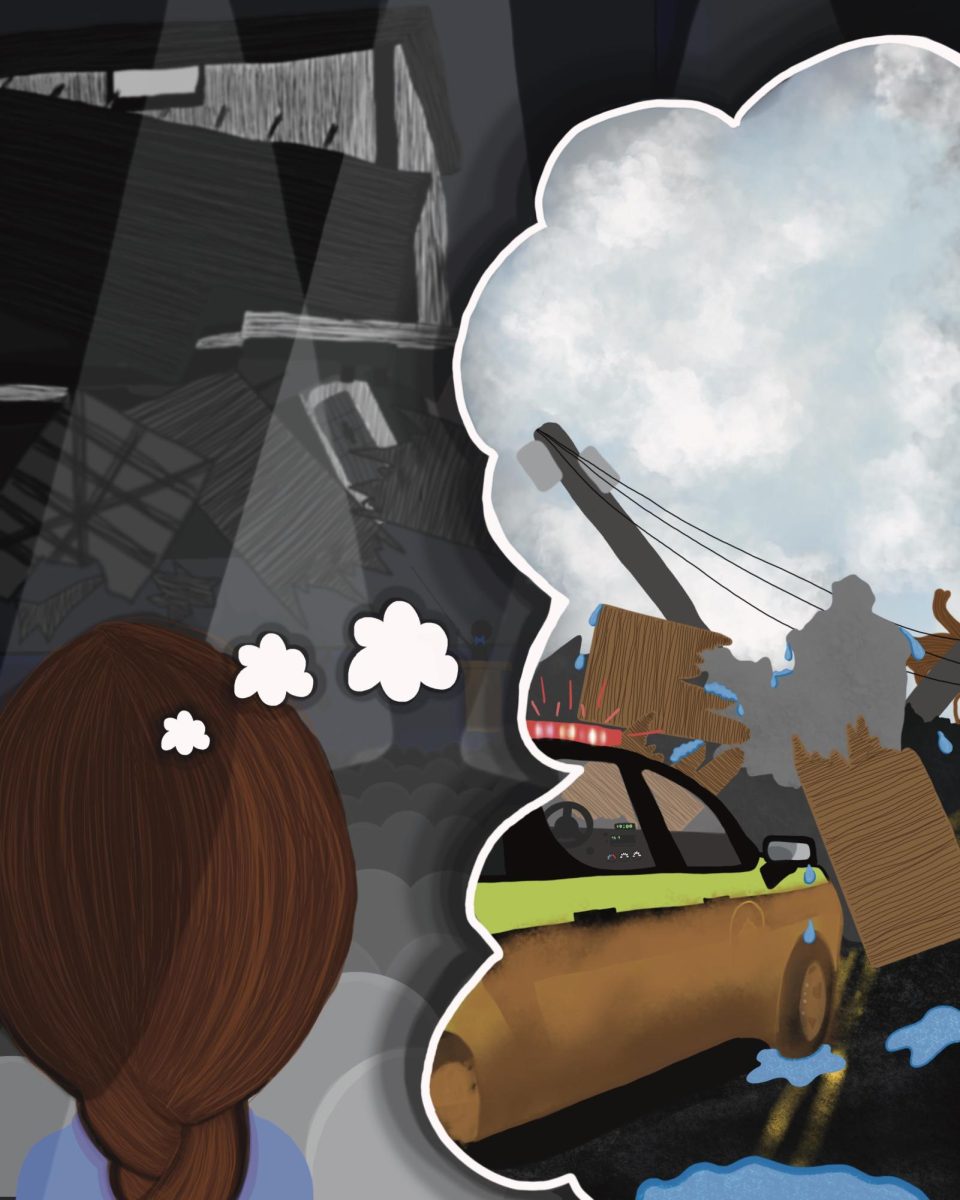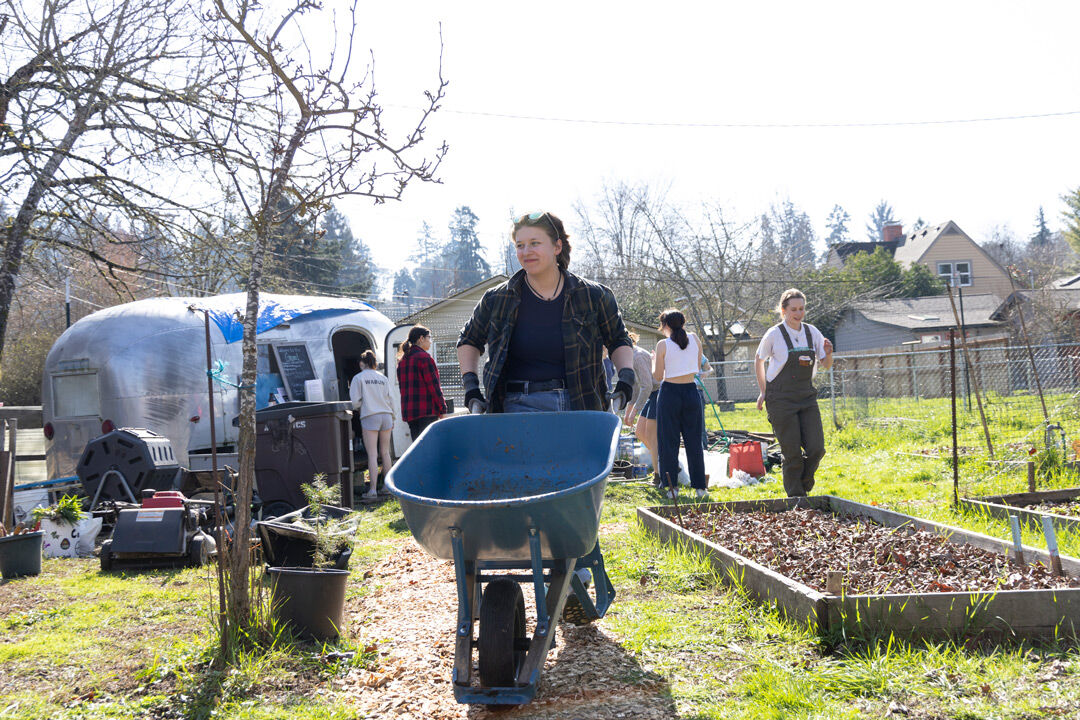It’s 3 a.m. Not many people are awake in the neighborhood of Has-Laram, Dili, the capital of East-Timor. The only people who remain awake are generally those who have no job and dropped out of school. The majority of them are young. According to a recent study by the United Nations, 20% of the Timorese youth between the ages 15-24 are considered NEET-neither in education nor in employment and training. These youth stay awake until late, doing nothing but drink with friends. The majority of them are men and born into broken families, where parents don’t want their children to study, but only to work or help at home. Men help their fathers, while women help their mothers. These are some of the norms of Timor and for those who play under different rules, then, discrimination, stigma and violence can be expected. One of these is Joker da Silva, a 31-year-old transman and one of the leaders of the LGBT movement in Timor.

Joker is one of the few members of this community who, since around three years ago, started becoming a greater role in the Timorese society. While coming out in public, Joker and other members of this community claimed their space and identity, while facing stereotypes and fighting back those who call them “monsters.” Joker, as well as Bella Galhos, Romi Aty, Natalino Guterres, and Domingos Barros are the main focus in the story. They are the leaders of a movement that is aimed to promote social change and empower LGBT rights in East-Timor. East-Timor was a Portuguese colony from 1512 until 1975. During the majority of those years, the Portuguese used this island for commercial purposes only. The majority of the Timorese people grew up in tribal communities, where a person like the Liurai ruled the land and decided the norms for everyone. The society worked in a completely different way when compared to western cultures. Just a few years before the end of the Portuguese leadership, the Portuguese started promoting the creation of political parties. However, the lack of political experience from the Timorese people birthed a civil war. In August 1975, the two political parties at that time were in conflict, which triggered Indonesia to invade the island at the end of the same year. The people of Timor were not celebrating the independence from Portugal when they had to face a war against their own neighbor. This war lasted 24 years, and during that period, about 25% of the Timorese population were tortured and killed. The people of Timor fought the way they could, but they never gave up. In 1999, Indonesia left East-Timor; and after that, the United Nations led a transitional period until May 20th, 2002, when East-Timor became independent for the first time.
East-Timor is young. The country turned 16 this past year, which makes it the 5th youngest. In order to understand the struggles of the LGBT community in today’s East-Timor, it’s important to understand how recent history, traditions and God, influence the country’s management and how the people behave.
“When I go to the church, many people keep staring at me, like I am a criminal. If I wear these kinds of clothes [like shorts and shirts], why should I go?” Joker da Silva said.
“There are a lot of regulations, [like:] girls have to be this; the church has norms [saying] a woman has to marry a man and a man has to marry a woman. No tomboys. No one can break this… ok? I want to obey, but these [rules] are not from God,” Joker said.

Joker grew up in Has-Laram, and is now accepted by his family and his neighbors, Joker’s early years were made of struggles.
“I realized having born into a woman’s body, when it was my first time to have my monthly period,” Joker said. “I saw myself as a girl, but my feelings were as boy. At that time, I was fearful as well, fearful to tell my fellow women that I had feelings for them.” Life is not easy for women in such a patriarchal society like East-Timor. And when it came to Joker, the consequences of his actions could be even worse. “I was afraid. I had my own family members who had the experience of being beaten, just like my older sister, who is heterosexual-a lady who likes men only-[but] my family would still beat her when they caught her with a boyfriend. My brothers would beat her until she was bloody,” Joker said. “And here I was with this feeling. So, I needed to end this feeling. I tried very hard to let this feeling go, but I simply couldn’t do that.”
In many stories similar to the Joker’s one, the family acceptance comes with financial independence. In East-Timor, generally all the generations of a family live together, and family members depend upon one another to provide basic resources like food, water and housing.
Women are generally are obligated to live under men’s rules, mostly because it’s the men’s job to provide, financially, for the family. Thus, while seeing Joker as a more manlike member in the family, his father started treating him differently.
“[My father] used to say, ‘Joker, with this kind of life that you have, we are just wasting on you. I feed you just like I feed a crocodile. Why should I feed a crocodile? It’s better to feed a pig, so when it grows, I can sell it and have some money,” Joker said. Joker understood he had two solutions: either staying at home and obey to his father’s rules, or leaving home to find a better life. “When I left the house, I wanted to prove that I was not a crocodile,” Joker said. “I told my dad that I would leave the house for three months. So, I met my friends who were LGBT [members] just like me. … We came together [and lived] in a village called Kuluhun Kalifornia, where Ateli lived. There were 59 of us who stayed together in a huge room. We slept together, because we were just looking for a place where we could just sleep.”

Zelia da Costa is Joker’s partner, also known as Ateli. Unlike Joker, who wants to hide his birth name, Ateli, who’s 28-year-old and sees herself as a bisexual woman, is not ashamed of her identity and to explain how natural it was to fall in love with Joker. “When I got this kind of sickness on my neck, … I almost died.” Ateli said. “Joker was the one taking care of me; none of my family came to see me here. … All of a sudden, I fall in love with him. I liked him, [and] I felt safe with him. There was peace and joy. I just wanted to be with him.”
Joker’s daily routines are made of hard work. At 3 a.m., he wakes up and goes to the slaughterhouse. There, Joker helps other men butcher livestock, which are going to be sold later on the same day at the popular Taibesi Market. Joker doesn’t make money out of it, but he gets part of the animals, which are to be cooked in a soup called Soto-an Indonesian soup.
Around 5 a.m., Joker is back in her house and tries to sleep a little bit, but usually he doesn’t. That is supposed to be the time when little Neurgia wakes up, and when a 1-year-old baby is awake, everyone around the baby is awake too. Joker, then, goes to get clean water in a fountain a little far from home. She has to walk about 15 min there, and walk back with the gallons of water.
At 7 a.m., Joker is back and the preparation for the day begins. Joker takes a shower, while Ateli prepares the breakfast. Joker then leaves home and takes transportation to go to Bidau Santa Ana, where Arco Iris is located. She has a full day of work until 5 p.m.
In the evening, Joker comes home and by that time, Soto is already ready to be sold. Joker then goes on the street and sell it for $0.50 each bowl. This may take until 11 p.m.
And at 3 a.m. everything has to start all over again. “I learned to live alone,” Joker said. “With [my] identity, ….. if I had to rely on my parents, I don’t think that would work. I needed to be independent.
I worked hard to be able to have food on my table, [and] I don’t need to live with a man in order of being happy.”
Joker and Ateli are today, one of the few same-sex couples living together in East-Timor. To add to that, they are raising 1-year-old Neurgia; which is Ateli’s daughter from a man she never loved, but was pressured to have a relation with. Joker became family to the newborn, despite not knowing yet if he is a father or mother.

“I don’t like [my] breast, [my] vagina, and anything [women related],” Joker said. “[But,] my daughter is my heart, … I am convinced that she is my daughter. When she is able to speak, she can call me anything, either papa or mama, I would accept.”
Additionally, by taking his story to the public view, Joker is hoping to influence others to do the same.
However, Joker himself wasn’t the first one. He was influenced by Bella Galhos, probably the most popular member of this community. “During that time, my friends and I were more into alcohol,” Joker said. “When I met Bella, my life changed…. She is a very important person in my life, and she is a big inspiration to me. … I can create things [now]. With this kind of orientation, I will don’t have to fear anyone.”
From all the LGBT members in East-Timor, Isabella Galhos, known as Bella Galhos, is the one who stands out more among the media. The 46-year-old bisexual woman and human rights activist was exiled in Canada during the 90s, in a time when Indonesia was occupying Timor. She studied abroad at the University of Hawaii, and after returning to her homeland, she became adviser of the former Timorese President Taur Matan Ruak.
“I’ve been always over the situation and putting meaning to it,” Galhos said. “[I] try to actually make changes here and there, influencing people’s way of thinking.”
Galhos is a wellknown person in East-Timor, not only as a result of her great career opportunities, but also because she frequently shares her negative childhood experiences. She wants to inspire, and make people learn with her story. For ex-ample, one of the very first things everyone knows about Galhos is that her father had 18 wives and 45 children, and when she was 4-year-old, her father sold her to the Indonesian for mere five dollars.
“The reason that I know of is of my characteristics, … when I was a child, it was already clear, I always considered myself a boy. I think my father was anticipating the future. … I consider now that I was the unwanted child by my father, but the child that was loved by my mother,” Galhos said.
Her mother, Galhos said, was her protector, even though she was the one who suffered the most. One thing is clear: The way Galhos expresses the ugly and the beautiful things she lived, give not only a great understanding of her character, but it’s an extension for what happens within many family chests in East-Timor.
“I was exposed to it as a victim. But also, … I can also act on violence, do it myself,” Galhos said. “When I was young, that’s what we did. I learned about this whole thing by seeing it, and actually doing it. … The parents did it to us, especially my father did it to all of us; … [at] the same time that he acted, he beat the hell out of my mother, land] he beat the hell out of all of us. And then my siblings [and I], we fought over each other too. … [For] everything, we would use violence. … a society like East-Timor, you see that violence is so rooted in many ways.”
Together with Iram Saeed, her partner, they have been building organizations that are aimed to help mistreated people in the Timor. After meeting in Hawaii, Saeed, 47-year-old, left India to live closer to Galhos in East-Timor.
“I found in her something which I don’t have,” Saeed said. “She was bold, she had a big voice, she knew how to talk, she knew how to make people laugh, she was full of stories, she could tell stories for the whole night.”
Together, they are raising Irabella, a little girl which the name consists on “Ira” from Iram, and “bella.”
“There are a few women very important in my life. [The] first one is my mother, and [the] second are my partners, [which] happen to be Iram and my daughter,” Galhos said. “We hope that someday, [Irabella] will carry on our legacy.”

The “Research Report on the Lives of Lesbian and Bisexual Women and Transgender Men in Timor-Leste” was one of the very first meaningful works they did. This was one of the very first investigative works to be done in the history of the country, and exposed a reality of oppression against members of the LGBT group. Despite the Timorese Constitution referring that equal rights should be preserved in the Timorese society, the study, which was published in 2017, shows the opposite; it shows that East-Timor still have a long way to go when it comes to social equality.
From all the 57 volunteers who submitted themselves to the study, 86% said they suffered from both physical and psychological violence. To add to that, the study refers that some of the reasons why same-sex couples don’t live together in East-Timor are “shame, social embargo and fear of abuse.” Moreover, the study refers “the conservative nature of [the] Timorese society makes it very difficult for them to open up about their SOGIE (sexual orientation and gender identity and expression).”
Some other findings show that 66% of the respondents earn less than $100 a month and only 2% have an income above $1000 a month. Several of this quantitative findings are impressive for its dimension. However, what makes this study a more critical is the testimonies of the 57 people who anonymously responded. One recollects being tied to their brothers car and dragged, followed by strangulation with a hose and torture in a water tank.
As a result of these findings, an organization called Arco Iris was founded.
“One of the recommendations of the study was that, … there is a lack of space … to meet, to share, to talk and to learn,” Saeed said.
“We were approached by the Australian embassy, [and] they said they had a small grant available and that we should applied for it, in the context of creating that safe space for the women who are gay. So, we created that space safe for LBT members.”
The current focus of Arco Iris is to build solid foundations for all the members. “Most of the members are new, they are young and they are inexperienced,” Saeed said.

“They are just coming out of their real life, to a place where they never been. They have never interacted with NGOs, they have never interacted with experts, they never had that kind of exposure. So, the whole idea of this space is to give them a chance to learn, within themselves and also invite some experts who can help them to create that positive energy.”
In a time where these and other members are promoting a social change, it’s important that many other elements within the Timorese society cooperate and participate on it. Before it’s too late, politicians and lawmakers are the ones who should address these problems at first.
However, Galhos argues there’s a long way to go when it comes to the acceptance of LGBT rights. “[Politicians] are not concerned; they don’t even care,” Galhos said. “Honestly, why would they care about LGBT? Most of them don’t know the meaning of it. … [Politicians] pick up safe zones, or comfort zones, to act on things not because they know or they believe there is a case, but they do it because there are a lot of people that they might able to get their votes.”
Despite that, there are some people with governmental connection that are aware of social problems faced by the Timorese LGBT community and are willing to promote change. The Ombudsman Silverio Pinto Baptista for Human Rights and Justice is an important person within the Timorese society. Galhos’ role is to protect and promote debate around human rights. As a public advocate elected in parliament, he makes connection between the people and the government.
“The ombudsman has to make advocacy so that public entities have the conscience that it’s their everyday duty to serve the community-so they won’t discriminate LGBT members,” Pinto Baptista said. “If one is a man, but he is [also a transgender, our duty is to protect his right…. The government, including the ombudsman and public entities… [like] police, community leaders and the educational sector. The school has no right to discriminate a person, … For example, a female student [feels] comfortable to wear shorts rather than [wearing] a skirt or a man [feels] comfortable to wear a skirt. They can do so, and the school has no reason to say these people have to wear according to what is already determined.”
Many members of the LGBT community struggle to stay at school. Bullying and social pressure are reasons why many members feel they don’t fit in an environment like university.
“I didn’t feel comfortable to continue [my studies] at the university, because of [its] norms. If you [are a man], you must cut your hair like a man,” Romi Aty said.
Among all the transgender community in East-Timor, Romi Aty is seen as one of the first to claim transgender rights in this country. The 38-year-old transwoman came out as a transgender in 2005, when many people in the Timorese society not even knew about the existence of people like the transgender. “They were asking questions like: ‘Are you a man or a woman?'” As a result of being one of the first to came out, Aty didn’t have the support of organizations like nowadays exist. She had to face everything on her own. Aty said, while working as a volunteer for a teacher, she would be pressured to change her character.

These events made Aty feel sad and quit the job at school. But her interest for the community was bigger than her frustrations. She took workshops in topics like Portuguese, English, and in health and HIV prevention. Despite that, life wasn’t easy for her and in 2009, Aty became a sexworker. “I wasn’t a transgender sex worker for a long time, maybe only six months,” Aty said. “Being sex worker is very hard; you’ll find problems.”
As a consequence of investing time in education, Aty worked for Timor Harii Foundation, ISEAN Hivos Organization and CODIVA Foundation; most of the times as volunteer, sometimes as employer. Aty became so involved that she took the lead at Coalition for Diversity and Action, one of the most important Timorese organizations besides Arco Iris. “CODIVA collaborates [with] all the community, not only LGBT. All the [Timorese] population can come and collaborate together,” Aty said. Together with the Ombudsman, CODIVA provides human rights training to police officers, members of the army and community leaders. Ombudsman Pinto Baptista said this effort is important.
“[Timorese officers should not] be like other nations [where they] are the ones who arrest LGBT members,” Pinto Baptista said. “Here in Timor, we don’t want that to happen. … Police [officers] have the obligation to accept cases coming from anyone, and if … [officers] don’t take an immediate action, the ombudsman will take action against the officers.”
In order to see policies being passed and more rights being attributed to LGBT members, public actions are important so the population accepts LGBT. The gay pride is an important event around the world, and it’s becoming a priority in East-Timor. Natalino Guterres is in charge of the pride event, which was organized for the second time in July 2018.
“Pride is really important I think, because visibility is important,” Guterres said. “Because, we know that people like us exist, but nobody wants to talk about it. … In order to address the problem, we need to make it visible. We need to let people know that … we have been discriminated and marginalized for our differences. And I feel like, pride embodies that, the visibility of the LGBT community.” Guterres said, “we are part of this country and a lot of us also contribute to [its] development, but we are forced to live in a way that is not us.”
Guterres, a 28-year-old man, is also one of the main leaders within the gay community. As a man in a patriarchal society, his responsibility and social pressures are even higher. “I was bullied a lot, because I was really different,” Guterres said. “At school, one day, one kid tried to pull my pants down in front of the class to see if I was a girl or a boy, and everyone was there and laughing,” he said. “It felt degrading. …[In] another time, 1 was walking and some kids were trying to throw stones at me and their parents were just laughing, and they didn’t do anything.”
Moreover, when everything goes bad, home should be a safe place, but it wasn’t for him. For Guterres, home was and extension of all the trauma. “[My parents] thought that the way I acted was wrong,” Guterres said. “I was just being myself and they thought I was wrong, that I should change, that I should act a bit more masculine.” Guterres lived moments of pure negativity, and he got to a stage where he even thought about ending his life.
“I was always told that if I kept being the way I was, I wouldn’t go far in life,” Guterres said.
“My uncles would tell me, ‘you should not act like this. You see people who are like that… how they ended up in life. They would point out to some people, some openly gay men, … and say, ‘you know, they don’t go far in life. It’s because they are like that.’ Guterres tried to date some girls, he said, but the attempted to change wasn’t what he needed. His frustration increased even more with the lack of family support, even though he says, “to me family is everything. I love my parents, I love my brothers, [and] their acceptance is really important.” He said, “I don’t want to be hated.”

Despite all the negativity, Guterres found his way out of East-Timor. He got several opportunities to study abroad in countries like Nor-way, the United States, England and Costa Rica, where he completed high school, a bachelors and a master program. He said studying abroad changed everything in his life. “When I left, … I met people who treated me nicely, … I felt loved for the first time,” Guterres said. “I fully realized: This is who I am; I shouldn’t hate myself; I shouldn’t hide; I should be proud of myself. I feel loved and understood here, and it’s time to fully embrace myself.” But, from realizing until coming out, it goes a long way.
Topics like this one are sensitive and it takes time for members to come out in public as LGBT.
“I started coming out slowly,” Guterres said. “I first came out to my brother, … and he didn’t take it nicely, we had a problem then. He was really upset, [and] we stopped talking for two years. … I still actually haven’t told my parents about it, they just guessed.”
Guterres’ plans are to not confront their parents with a reality they don’t want to hear. Instead, he works aside within the Timorese society, and he hopes his projects to change not only the mindset of many Timorese, but also bring the acceptance to his family. Besides the gay pride, Guterres founded Hatutan, a group that promotes social inclusion. They work with marginalized youth, and aimed everyone to feel accepted and feel included in the country’s growth.
The difficulty on talking openly about a different sexual orientation seems to be more difficult to men, when compared to women. Other members of the gay community faced similar struggles as Guterres did. Domingos Barros, a 22-year-old student from Dili Institute of Technology said, “I think [my parents] already know me, so they don’t to ask me anymore.”
Bella Galhos call it a “public secret.”
“It means that people know, but people just don’t want to talk about it.” Likewise, that create a lack of communication between people who may be in trouble, but just don’t want to share with their closest family members for being afraid of the consequences. Barros said, when he suffered from violent attacks, he would keep it to himself. “I didn’t even tell my parents,” Barros said. “I didn’t even tell to the family as well. So, my friends were [my] protectors, because some of my family… they don’t even understand.”

As someone who is connected to a globalized world through social media, Barros is part of a new generation who is looking abroad to seek their own progression. He’s a Business student, but his passion for fashion designing makes him look abroad. While East-Timor’s conservatism is getting too tight, especially for the new ambitious generations, Barros looks to the United States and Australia as two countries where he would like to make a living.
Discrimination, stigma and violence are tools used by homophobic people. These characteristics increase, because people believe members of this community aren’t normal human beings. In conservative societies like East-Timor, the solution seems to show that restricting these groups is better in order to not influence other individuals.
“People think homosexuality is something abnormal,” Guterres said. “It’s something that is odd They see this as something inferior.”
The homophobic attack is often verbal, but many times is also physical.
“We shared the football club, and then I didn’t want to get into it. And a friend of mine, he kept forcing me,” Barros said. “I said, ‘I don’t want!’ And he said, ‘Why you don’t want? You’re a man, you’re a boy, you have to go and play it? I said ‘I don’t want,’ and then he kept punching me.”
“People are so scared of you, they think you are a virus,” Galhos said. “They think you are a person who are after everybody; if you love a woman, then you’ll be after every woman; if you are gay and you love a man, you’ll be for every man. That’s how people describe LGBT… People just hate LGBT. And the way they hate, … they [can] hurt you with words, they [can] hurt you physically, they name you. And mentally, they just put you in a way that you don’t even feel you’re like a human.”
In addition, strong religious beliefs may also contribute for the increase of homophobia in East-Timor. “LGBT is not a virus that will destroy the society,” Pinto Baptista said. “Some people say that LGBT [members] are a curse from God and it’s actually not [truth], and [by] looking at the religious perspective, they are also God’s creation.”
The Catholic church is by far the biggest religious institution in East-Timor. Catholicism in the country is a Portuguese influence, and although the Portuguese language was banned and effectively erased under the control of the Indonesian, Catholicism did not receive the same treatment. Асcording to the Word Atlas, 97.6% of today’s Timorese people are Catholic, which gives its bishops a bigger responsibility toward the Timorese believers. “The duty of the Catholic church is to increase moral conscience,” Pinto Baptista said. “One of the doctrines in the Catholic church is the Lord’s love and the love to others as you do to yourself… Even though people have differences in their (sexual] orientation, we need to respect and love them.”
The church shapes the way people relate to each other and how couples behave in interpersonal relationships. Traditional couples don’t usually show affection in public, and when it comes to same-sex couples, showing affection becomes even harder. More and more countries are changing same-sex marriage to become a legal right; however, in underdeveloped nations, basic foundations may be a higher priority. “[Same-sex marriage] doesn’t really matter,” Galhos said. “What it matters to me are the protections, social securities, opportunities, [and] resources. All being giving to everybody without looking at, or based on, the sexual orientation.”
“When we do our work, people think we talk about gay marriage,” Guterres said. “But, really, that’s not what we are focusing on right now. … When you see kids being discriminated, being bullied, [and] being kicked out of home, you should really prioritize on that.”
East-Timor’s LGBT community is showing that is here to stay. However, everything is recent; the movement and the country are young and will need time and solid foundations to grow. It’s not only the community that is growing, but also the acceptance of many other Timorese is becoming real. Recent public events and the work done by leading members is allowing the public to show respect toward their cause, and also allowing other hidden members to feel they can come out in public and show themselves with no fear. While this happens, East-Timor needs political and religious leaders who show openness for every one and in every moment. No matter what the people’s opinion about politicians are, the truth is that a fundamentalist leader can bring division upon citizens and make minorities more vulnerable.
“Changing minds is not an easy job, but, it is an important one,” Guterres said. “Policies’ change alone cannot always contribute to changes, because the real change as to do with changing the hearths and minds of [the] people. … We want a future that is more inclusive.”

“I’m not afraid anymore,” Barros said. “It’s my time to explode.”


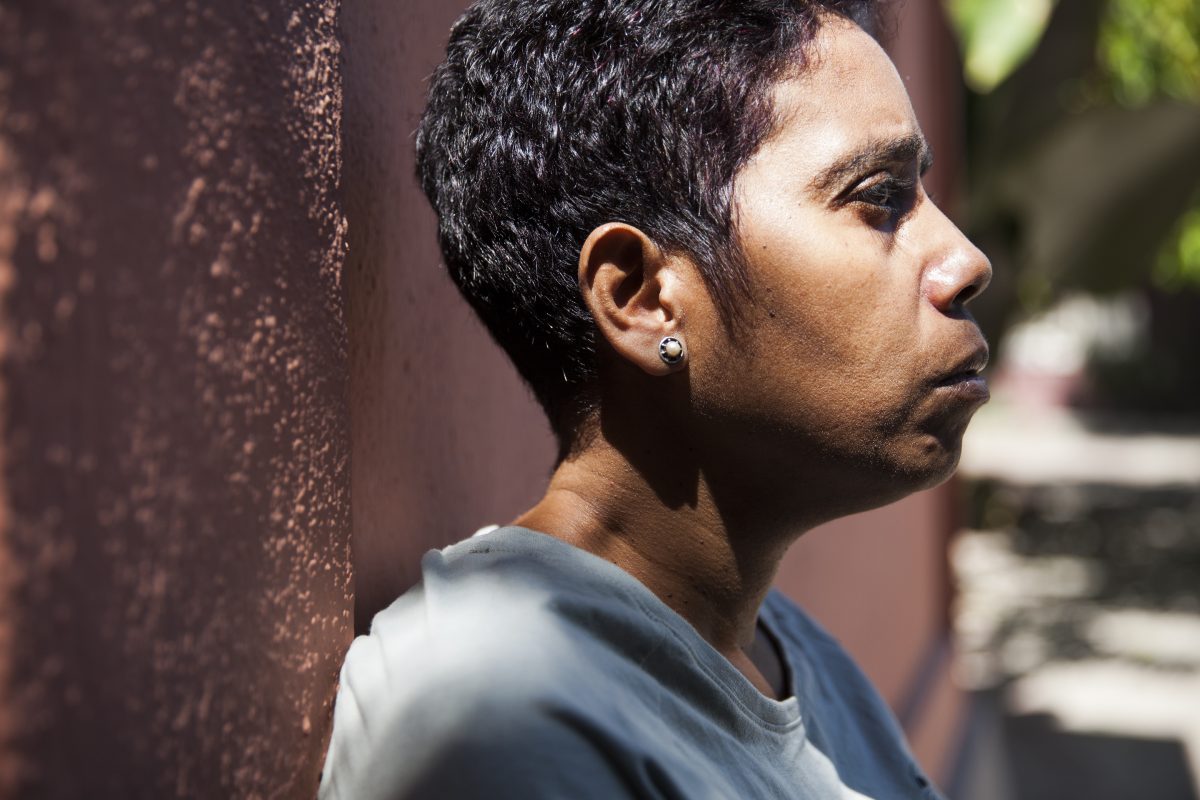
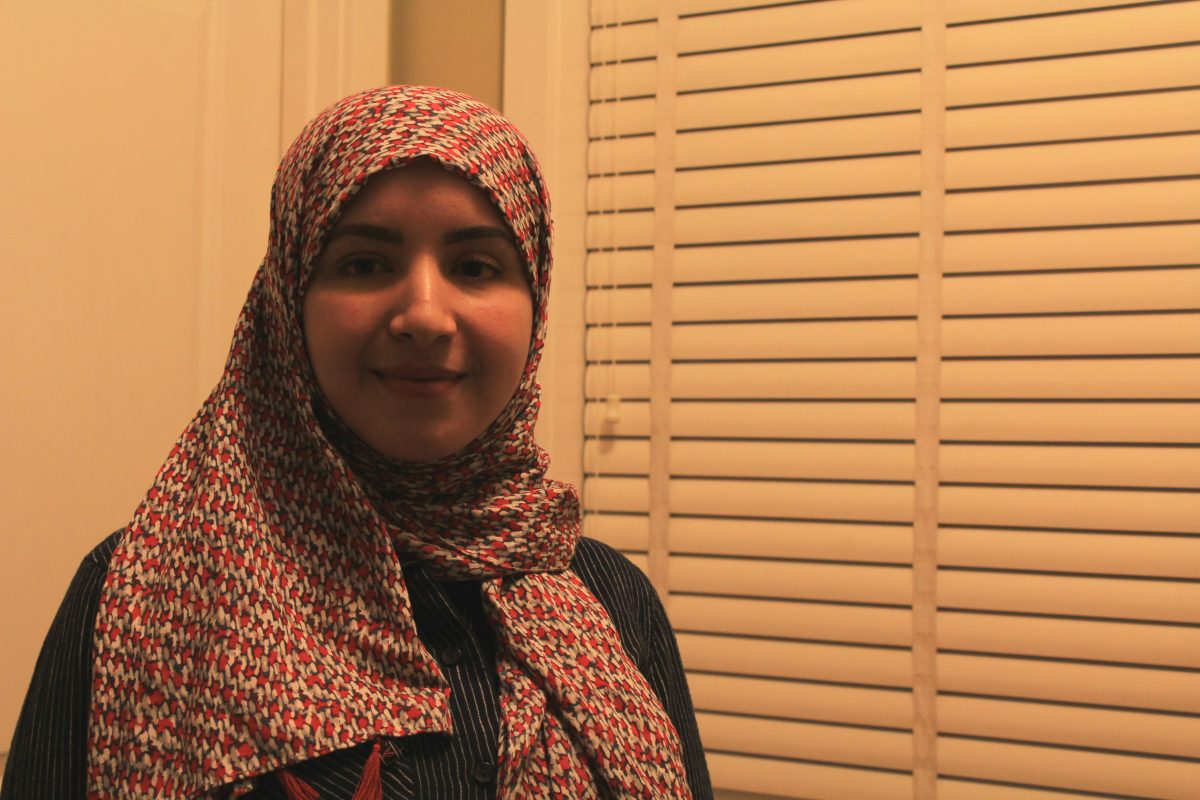
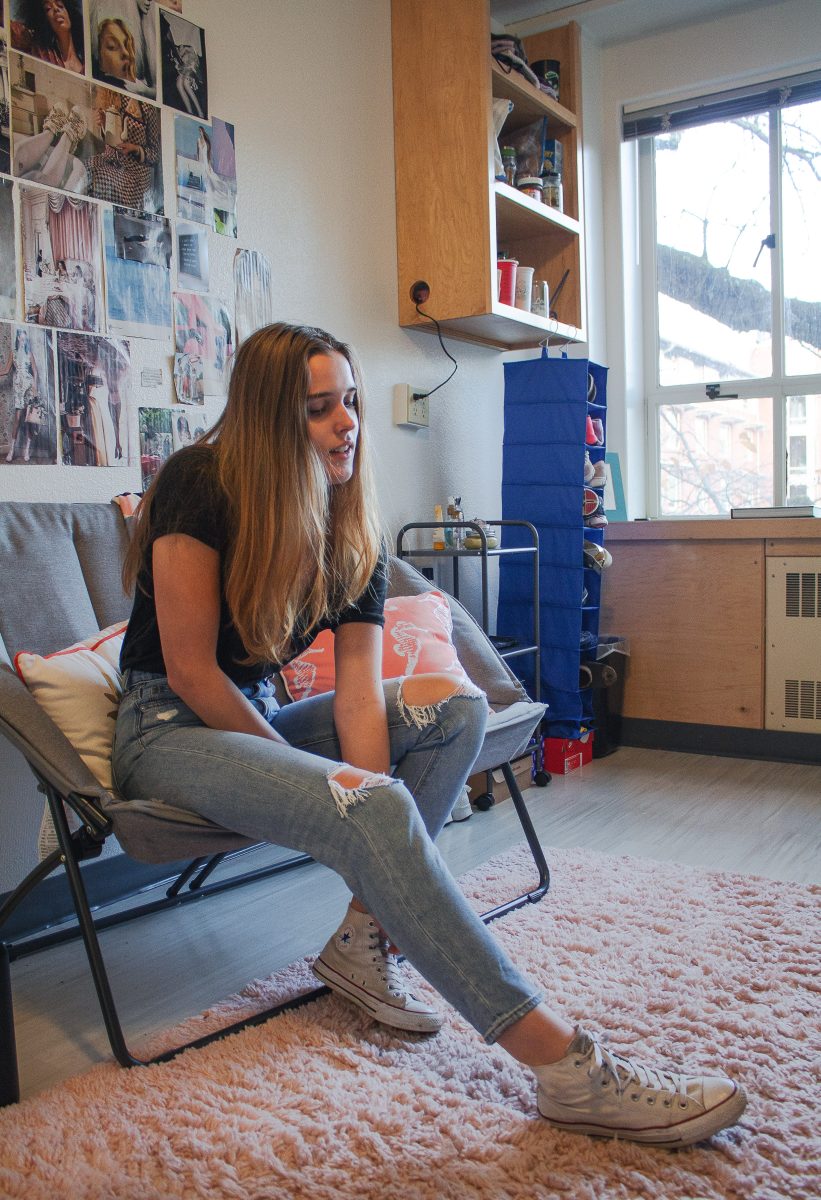
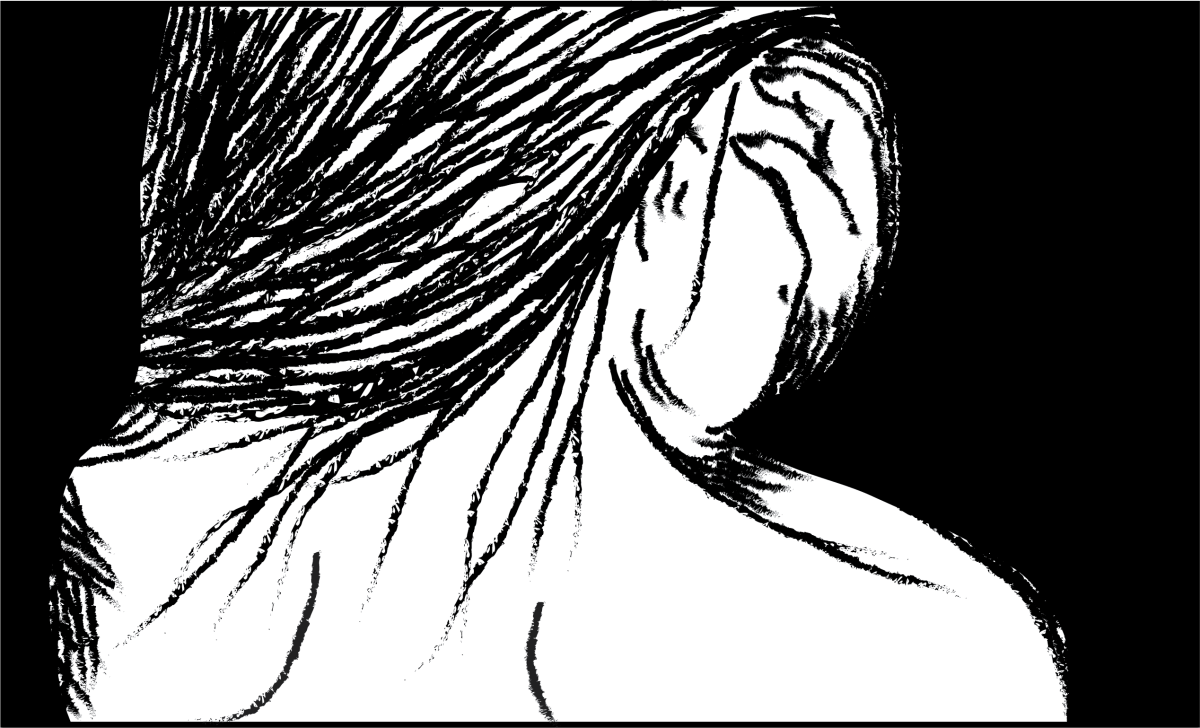
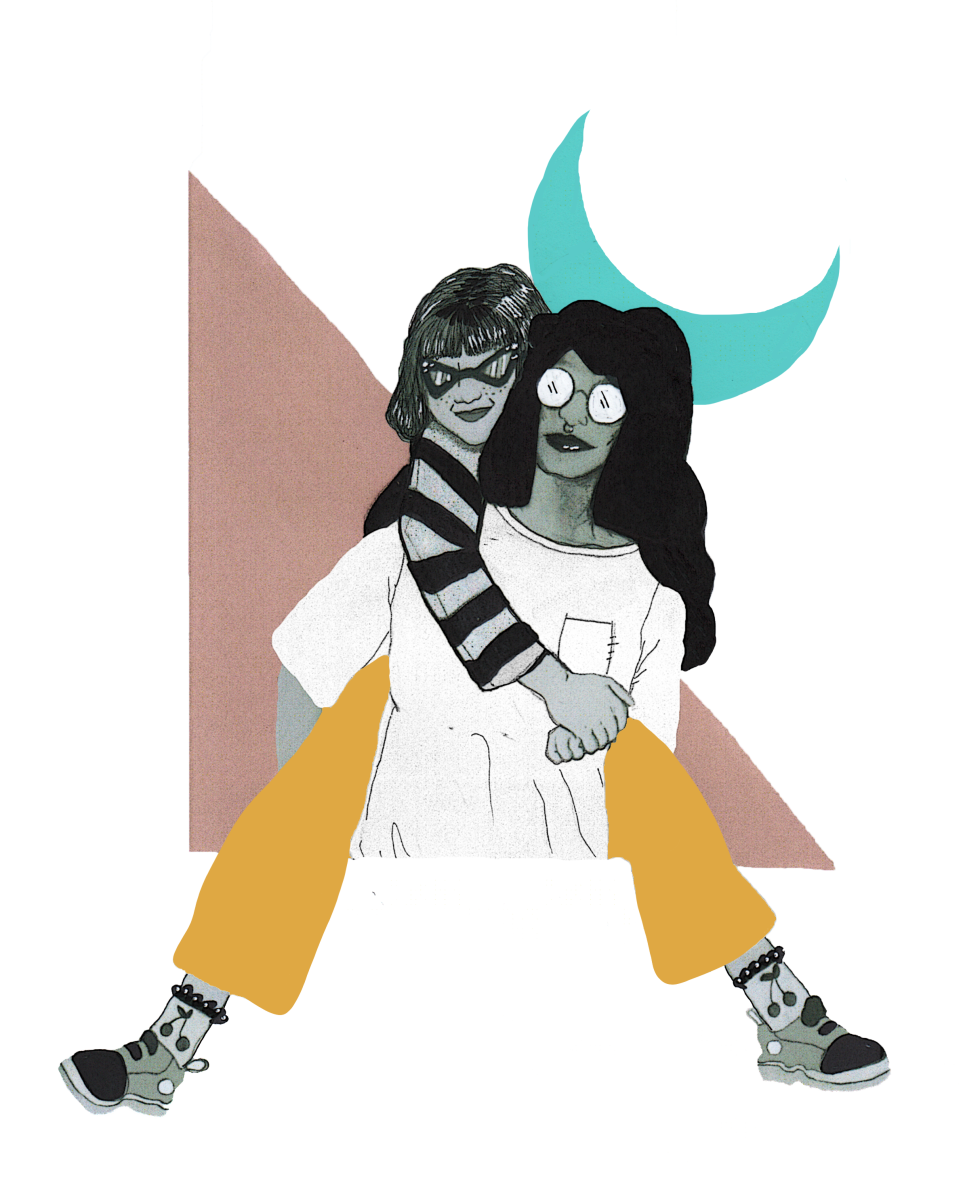



![[Photo Courtesy of the Lara Family]
Ruben embraces his beloved childhood goat, Katrina.](http://ethos.dailyemerald.com/wp-content/uploads/2025/05/katrina-1-1060x1200.jpg)



